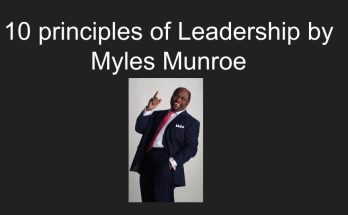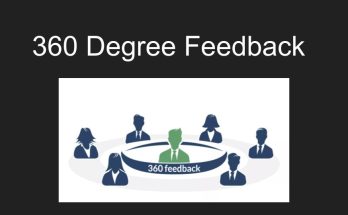Lake Wobegon effect is a common psychological fallacy we all suffer.
Do you or someone you know always overestimate their ability? Unfortunately, especially when it comes to comparison with others, it is more likely to happen.
I have come across the Lake Wobegon effect while studying performance management data and found it relevant to my personal life.
Let’s see The Lake Wobegon effect in detail. What is it? How does it affect our lives? What can we do about the Lake Wobegon effect?
What is the Lake Wobegon effect?
In simple words, The Lake Wobegon effect is our tendency to overestimate our ability and skill when compared with others.
We all overestimate our abilities and skills. Have you observed this in performance rating in your organization? Everyone rates themselves at least above average.
Mathematically everyone can’t be above average. At the most, 50% can be above average, but the rest has to be below average.
Is the Lake Wobegon a real place?
No, Lake Wobegon is not a real place.
Here is the brief history behind the term The Lake Wobegon Effect
Lake Wobegon is the name of a fictional town in a popular radio program created and hosted by Garrison Keillor.
The program aired live on Minnesota public radio in the USA from 1974 to 2016.
In the program’s segment called “News from Lake Wobegon,” Keillor referred to his fictional hometown of Lake Wobegon as
“the little town that time forgot and the decades cannot improve … where all the women are strong, all the men are good-looking, and all the children are above average”.
In reality, not all women may be hard-working, all men are good-looking, or specifically, every child can’t be above average.
The radio program was popular, so the Lake Wobegon effect name was formed.
What is another name for the Lake Wobegon effect?
Some may also know the Lake Wobegon effect as:
- Illusory superiority
- Superiority Bias
- Above-average effect
Some professionals also term it the Lake Wobegon fallacy.
Why does the Lake Wobegon effect happen?
The Lake Wobegon effect is one type of cognitive bias.
Now, what is cognitive bias?

We human beings believe that we are rational and sane. Therefore, we make decisions that are non-judgemental and rational.
We also think we observe people, events, behavior, and situations as they are.
However, in reality, We humans are not always rational. Our decisions are judgemental and often time bais.
The human brain has a tendency to take shortcuts to simplify information. These shortcuts are cognitive biases.
Our brain establishes some rules for functioning. Some are rules of thumb or strong belief systems that are hard to change.
These rules judge events, people, and situations to make quick sense of the world around us.
For example, you see a Door handle, your brain assumes pulling the handle down will open the door. You don’t really have to think about it consciously.
It will be weird and time-consuming if our brain starts thinking consciously about these small matters. So instead, the brain applies the rule of thumb and is instructed to pull the door handle down to open the door.
This system works perfectly fine until you get a door handle that needs to move up to open the door.
Like any other cognitive bias, the Lake Wobegon effect also occurs due to our brain’s tendency to take shortcuts or not think consciously, which is fine up to a certain level.
So, The Lake Wobegon effect happens when the brain follows its tendency to perceive all information about the world from the filter of personal experience and belief system.
How do we overcome the Lake Wobegon effect?
It is impossible to completely eliminate the Lake Wobegon effect’s cognitive biases. However, having an awareness of such bias is the first step toward change.
Just having an awareness of our tendencies to overate ourselves can lead to reflection, discussions, and action over a while.
To overcome the Lake Wobegon effect, You can take feedback from others, for example, your friends, relatives, colleagues, and anyone who interacts with you regularly. For example, you can ask them their view about your tendency to overrate yourself.

Learn to be non-judgemental and try to see events, situations, and people as they are. For this, you can always take the second opinion of people around you.
Stay humble with everyone around you and be aware of the Lake Wobegon effect.
Your idea of above-average performance may differ from another person’s perspective on performance. The best is to understand what other people understand as above-average performance. Taking feedback from people will always give different perspectives to you.
The Lake Wobegon effect and Dunning-Kruger Effect
There are a few similarities between The Lake Wobegon effect and the Dunning-Kruger effect.

The Dunning-Kruger effect says, “You don’t know what you don’t know.” If you don’t know about the subject, you are less likely to know how far you are from others in the subject. It can create a sense of overinflated and disturbing overconfidence.
Let’s take an example of a programmer who wants to learn to code. Having no prior knowledge, he may think how hard it will be to learn to code? But, on the other hand, he already knows some stuff about HTML learning to code shall be a piece of cake.
Those who are experienced may understand reality very differently. When this person starts learning to code, he may realize how his abilities with HTML are not of any help.
The Dunning-Kruger effect is quite worrisome, as it suggests people will rank themselves high even if they have the least amount of knowledge on the subject. It is pretty risky when it comes to life-threatening situations.
So The Dunning-Kruger effect and the Lake Wobegon effect are cognitive biases where we overestimate our intelligence, ability, and knowledge.
What are the Lake Wobegon effect examples?
Now let’s understand the Lake Wobegon effect with the help of some examples.
Below are just a few examples of the Lake Wobegon effect. It includes some of the examples from the research of Chip and Dan Heath in their book Switch.
- In a survey, 68% of faculty members at the University of Nebraska, rated themselves in the top 25% for teaching ability.
- 87% of MBA students at Stanford University rated their academic performance as above the median.
- A majority of people believe that they are at a lower risk for heart attack or cancer, and even food-related disease.
- 93% of the adult drivers surveyed thought that their driving ability was above average.
- 88 believe they’re safer drivers than the average.
- Almost everyone on a dating site describes themselves as above average or better
- 78% of the time people are likely to score themselves higher in 360-degree feedback ratings than others score them.
Consequences of the Lake Wobegon effect
As per Dunning-Kruger, the research found that, in general, people who are below average in terms of intelligence and knowledge, most of the time, believed themselves to be the smartest people.
In fact, Nietzsche used to call this group of people bildungsphilisters, or cultural philistines, ignorant people who boast about their degrees and years of experience.
Most of the studies regarding the Lake Wobegon effect agree that people with slightly lower abilities often overestimate their abilities and have a hard time seeing their incompetencies.
While on the other hand, people with slightly higher abilities often underestimate their abilities compared to their real performance. They tend to doubt themselves and feel insecure. They also seem less confident and hesitant.
What are the takeaways from the Lake Wobegon effect?
Imagine you are a leader, and your team is suffering from the Lake Wobegon effect. As a result, they tend to overestimate their abilities and take up projects that they may not be able to justify.
While there are team members who underestimate their ability and never show confidence in the project.
If you are a leader who follows the first impression may give work to people with fewer capabilities to perform the task.
Organizations can use 360-degree assessment tools to identify these hindsight or cognitive biases. Organizations can also promote a culture of feedback and follow-up to avoid the Lake Wobegon effect.
Check out some interesting book summaries.
The coaching manager’s summary
The five dysfunctions of a team summary
References


